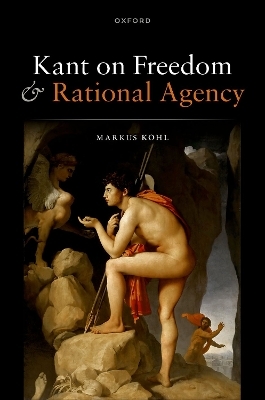
Kant on Freedom and Rational Agency
Oxford University Press (Verlag)
978-0-19-887314-3 (ISBN)
Kant on Freedom and Rational Agency provides a novel interpretation and rational reconstruction of Kant's doctrine of freedom. Markus Kohl shows how Kant defends the belief that we are free from foreign (natural and super-natural) causes as a presupposition of all meaningful human activity. While this interpretation focuses on the essential role that freedom of will plays in our moral agency, it also examines how our status as rational cognitive agents hinges on our freedom of thought, and why our aesthetic engagement with beauty requires our freedom of imagination. Kohl thereby gives a compelling sense of Kant's estimation that freedom is a "cardinal point"--even the "keystone"--of his entire critical philosophy.
Kant's doctrine of freedom emerges in this account as a systematic critique of a naturalistic worldview which regards all our capacities, representations, and actions as the causal upshot of natural laws and forces. Kant holds that the naturalistic worldview fatally undermines our self-conception as rational agents. This critique of naturalism culminates in the argument that naturalistic cognizers cannot explain away our freedom from natural forces because they must presuppose such a freedom in their own cognitive efforts to devise rationally valid naturalistic theories.
Markus Kohl is Associate Professor of Philosophy at University of North Carolina at Chapel Hill. He received his PhD in Philosophy from the University of California, Berkeley in 2012, and was Assistant Professor of Philosophy at the University of Tennessee, Knoxville from 2012 to 2017.
Preface and Acknowledgements
Notes on Sources and Key to Abbreviations and Translations
Introduction
I: The Basic Framework of Kant's Doctrine
1: Freedom, Idealism, and Standpoints
2: Human Action as the Effect of Two Causes
3: Freedom as Autonomous Self-Determination
II: The Grounds of Kant's Incompatibilism About Free Will
4: Legislative Freedom and Kant's Genealogical Anxiety
5: Executive Freedom, Determinism, and the Categorical Imperative
Transition to Part 3
III: Freedom of Thought as a Species of Transcendental Freedom
6: Kant's Free Thinker
7: Freedom of Thought as a Condition of Theoretical Cognition
IV: Kant's Justification of the Belief in Free Will
8: Kant's Moral Grounding of Free Will
9: Kant's Theoretical Defense of Moral Freedom
Summary and Transition to Part 5
V: Freedom in Kant's Aesthetics and the Unity of Kant's Doctrine
10: Freedom of Imagination and the "Autonomy of Taste"
Bibliography
Index
| Erscheinungsdatum | 10.07.2023 |
|---|---|
| Verlagsort | Oxford |
| Sprache | englisch |
| Maße | 165 x 240 mm |
| Gewicht | 686 g |
| Themenwelt | Geisteswissenschaften ► Philosophie ► Erkenntnistheorie / Wissenschaftstheorie |
| Geisteswissenschaften ► Philosophie ► Geschichte der Philosophie | |
| Geisteswissenschaften ► Philosophie ► Metaphysik / Ontologie | |
| Geisteswissenschaften ► Philosophie ► Philosophie der Neuzeit | |
| Sozialwissenschaften | |
| ISBN-10 | 0-19-887314-X / 019887314X |
| ISBN-13 | 978-0-19-887314-3 / 9780198873143 |
| Zustand | Neuware |
| Informationen gemäß Produktsicherheitsverordnung (GPSR) | |
| Haben Sie eine Frage zum Produkt? |
aus dem Bereich

![Was heißt Denken?. Vorlesung Wintersemester 1951/52. [Was bedeutet das alles?] - Martin Heidegger](/media/113619842)
